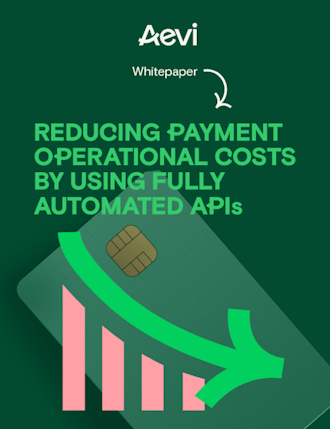As a business in payments, developing a seamless and well-rounded platform can help you produce valuable market decisions and streamlined operations. One way to achieve these goals is to ensure that your web app API is well integrated.
Let’s look into how API integration improves your payment processes. Here are seven crucial reasons why you should move to an API integration platform to help you enhance the functionality of your systems and overall improve your existing payment processes.
What is API integration?
API Integration connects two or more applications or systems via their application programming interface (APIs), allowing them to exchange data sources and information.
Most business applications require communication between multiple APIs to import and transfer relevant data to execute specific tasks. That said, fostering numerous communication channels with various APIs will need an API integration platform for smoother and enhanced data exchange and processes.
The goal of API integration is to seamlessly weave numerous operational layers (such as applications and web systems) within your business.
This will:
- Keep your data in sync
- Enhance your productivity
- Drive revenue
How does API integration work?
To start, let us first delve into how APIs work. APIs are usually dubbed as the messenger within applications that deliver prompts and messages from one place to another.
Think of it as a restaurant where a waiter takes your order and asks the kitchen to make it for you. The waiter is the API, while the kitchen is the server that produces your requests before it is sent back to you, the end user.
APIs, in a sense, are the intermediate between you (the end-user) and the application.
As mentioned earlier, most applications deal with a myriad of APIs to perform a specific task. With API integration, you are linking numerous APIs in one string to foster a more seamless and cohesive process for data transfer and communication, enabling your app to perform faster.
Reasons why you should move to an API integration platform
As a payment solutions provider, it is essential to ensure that you deliver an easy, seamless, and secure payment process between your customers and the merchants they transact with. Here, we listed seven aspects that could benefit your payment processes when moving to an API integration platform.
#1: Process automation
API Integration allows you to collectively transfer data and information from one application to the next without requiring your customers to re-input their transaction details to complete the process.
Moreover, automation can help eliminate the chances of encountering human errors, saving time and keeping transactions accurate and safe.
#2: Scalability
With any application, scalability is one crucial factor to consider to ensure that your business caters to the growing number of customers you gain over time, along with their increasing needs.
API integration allows you to implement new APIs quickly by enabling the creation of APIs from an existing integrator. You can easily introduce new features and payment channels such as digital wallets, bitcoin and crypto, etc.
#3: Streamlined data collection and insights
Part of being a payment solutions provider is to create reports and analyses on consumer spending and behaviour to help you make accurate predictions on market trends. Integrating your APIs gives you end-to-end access and visibility on systems, processes, insights, and consumer data for a better reporting process.
#4: Enhance existing system performance
Numerous organizations continue to utilize legacy systems, leading to outdated and cluttered information that doesn’t necessarily help the system. With API integration platforms, it eliminates these by enabling management to designate specific APIs for internal and external uses.
#5: Lower churn rates
Typically, when merchants decline payments or when the online checkout process takes too long, customers decide to abandon the process altogether. Through API integration, you can quickly implement new technology that detects online fraud, streamline payment processes, and minimize auto-declines.
#6: Flexibility
Today, customers have a myriad of payment options available at their fingertips, which can become a hassle if you lack one or more of these payment alternatives as an option in your store. API integration allows you to provide an API gateway, where third-party channels can embed different payment methods into a single interface so that customers can access several payment options.
#7: Increased consumer retention
The more satisfied your customers are, the more likely they will continue to patronize your brand. By giving them access to numerous payment options, a fast checkout process, and other features that enhance their payment experience, they will likely continue to transact with your brand.
Improve payment processes for your business
As banks and financial institutions evolve and foster digitized solutions to banking and payment processes, it is ideal for these companies to modernize their infrastructures to industry trends and standards. Moving to an API integration platform allows you to provide technology-driven, customer-centric products and services within your market.
Interested in reading more around this subject? Here are some useful articles…













